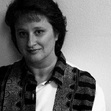A Muse Named Dante
"If any great author on the other side wants to write another book, I'm available," I whispered into the darkness of an autumn morning.
The name Dante popped into my mind. Well, OK, I'll go with that.
I got out of bed and sat down at my iPad and wrote the first sentence that came to mind, then the second sentence, and so on, until two chapters had finished themselves.
It was about death. Of course it would be. But science fiction? Really? I love good sci fi, but that wouldn't be my choice for my first work of fiction. Oh well. The first chapter had hooked my interest. Already, I was curious about what would happen next to this new character.
The only thing that felt familiar to me was the writing style. I've always had the talent of hiding rhyme, meter, alliteration and other elements of poetry into prose so that it's not obvious, yet gives the text beauty. But that does not make a novelist.
I had never before attempted to write a novel. My only training was one fiction writing class in college thirty years ago. I had given no thought to plot, back story, character development, and whatever else the elements of good fiction are supposed to be. And yet, after six days and seven chapters, all those things seemed to be taking care of themselves.
Was a dead author really writing it? It didn't feel like it. But what would that feel like?
After two weeks of writing, I went back and read the first sixteen chapters. I was thrilled and delighted. The plot was compelling. The characters had emotional depth. The weaving in of internal dialogue and bits of back story was perfect.
But I don't know how to do this, I thought.
I noticed a few minor contradictions and other details that had to be addressed. If Darby is shivering, it must be late fall or winter, not spring. If he uses a thought facsimilator, at some point, it has to be explained how that technology works.
And so I wrote chapters seventeen through twenty-three with my left brain engaged, and they sounded like a different book. The flowing feel of the story had stopped. Still, the left-brain work had to be done. The story has to make sense.
Just relax, I told myself. Are you there, Dante? Come on, let's finish this book.
On day sixty of writing, I penned the last sentence of The Transition Witness. Tears came to my eyes, not because I had finished writing a novel, but because of what the protagonist had overcome and whom she had become. I was so proud of her.
And I knew her adventures were not finished yet.
NEXT BLOG ENTRY: Will I be able to again tap into a skill that I don't possess in order to write the second book in the series?
The name Dante popped into my mind. Well, OK, I'll go with that.
I got out of bed and sat down at my iPad and wrote the first sentence that came to mind, then the second sentence, and so on, until two chapters had finished themselves.
It was about death. Of course it would be. But science fiction? Really? I love good sci fi, but that wouldn't be my choice for my first work of fiction. Oh well. The first chapter had hooked my interest. Already, I was curious about what would happen next to this new character.
The only thing that felt familiar to me was the writing style. I've always had the talent of hiding rhyme, meter, alliteration and other elements of poetry into prose so that it's not obvious, yet gives the text beauty. But that does not make a novelist.
I had never before attempted to write a novel. My only training was one fiction writing class in college thirty years ago. I had given no thought to plot, back story, character development, and whatever else the elements of good fiction are supposed to be. And yet, after six days and seven chapters, all those things seemed to be taking care of themselves.
Was a dead author really writing it? It didn't feel like it. But what would that feel like?
After two weeks of writing, I went back and read the first sixteen chapters. I was thrilled and delighted. The plot was compelling. The characters had emotional depth. The weaving in of internal dialogue and bits of back story was perfect.
But I don't know how to do this, I thought.
I noticed a few minor contradictions and other details that had to be addressed. If Darby is shivering, it must be late fall or winter, not spring. If he uses a thought facsimilator, at some point, it has to be explained how that technology works.
And so I wrote chapters seventeen through twenty-three with my left brain engaged, and they sounded like a different book. The flowing feel of the story had stopped. Still, the left-brain work had to be done. The story has to make sense.
Just relax, I told myself. Are you there, Dante? Come on, let's finish this book.
On day sixty of writing, I penned the last sentence of The Transition Witness. Tears came to my eyes, not because I had finished writing a novel, but because of what the protagonist had overcome and whom she had become. I was so proud of her.
And I knew her adventures were not finished yet.
NEXT BLOG ENTRY: Will I be able to again tap into a skill that I don't possess in order to write the second book in the series?
Published on June 11, 2014 10:57
•
Tags:
amwriting, science-fiction, transition-witness, writing-process
No comments have been added yet.



